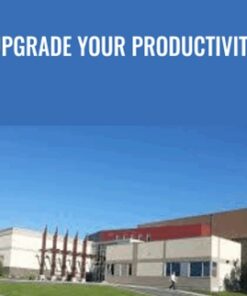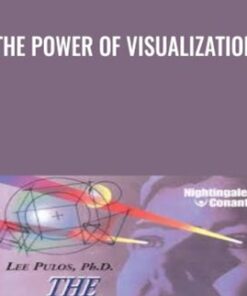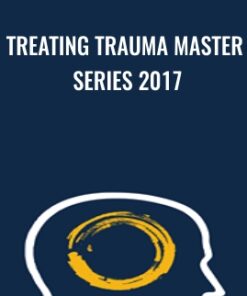6 Hours 26 Minutes
In many rehabilitation settings, therapists are faced with the challenge of how best to teach motor skills to patients. In pediatric settings, the challenge is to optimize the learning of new skills, while in neurologic and geriatric settings, therapists primarily focus on changing inappropriate motor behavior and the re-learning of motor skills.
#s3gt_translate_tooltip_mini { display: none !important; }
Purchase Advances in Motor Control and Learning for Neurological Rehab – Ben Sidaway courses at here with PRICE $199.99 $84
In many rehabilitation settings, therapists are faced with the challenge of how best to teach motor skills to patients. In pediatric settings, the challenge is to optimize the learning of new skills, while in neurologic and geriatric settings, therapists primarily focus on changing inappropriate motor behavior and the re-learning of motor skills.
Successful therapists must be able to accurately determine the cause of motor skill impairments and then design treatment approaches that facilitate the learning or re-learning of motor skills. In today’s fast paced health care environment, therapists must be adept in structuring the learning environment to promote the quickest and longest lasting changes in a patient’s motor skills.
In this course, you will examine current theoretical and applied perspectives in the field of motor control and learning and will discuss their implications for therapeutic evaluation and treatment. Course discussion will be focused at the behavioral level and will compare and contrast information processing and dynamic systems models in understanding normal and pathological human motor behavior. Implications for treatment stemming from both approaches will be examined.
You will constructively criticize current assumptions underlying motor control rehabilitation and discuss how theoretical frameworks bias evaluation and treatment options. Given an understanding of past and current approaches to motor control and learning, you will be able to flexibly design their own unique treatment approaches to optimize functional outcomes in each patient.
- Integrate recent developments in motor control and learning into interventions for pediatric, geriatric, and neurologic rehabilitation.
- Assess underlying causes of motor skill impairments.
- Differentiate between changes in performance and motor learning.
- Utilize the constraints theory to promote the re-emergence of motor skills in stroke patients.
- Describe instructional techniques that will facilitate motor skill learning during treatment.
- Incorporate a holistic approach to promote the re-emergence of motor skills.
- Design flexible evaluation and treatment programs for patients with neurological involvement based on current motor control and learning research.
- Utilize the process of perception-action coupling to help facilitate movement.
MODELS OF MOTOR CONTROL
- Reflex models
- Peripheral control
- Spinal control
- Hierarchical and information processing models
- The role of cognition
- Motor programs
- Mass-spring models
- Dynamics systems and ecological models
- The degrees of freedom problem
CASE STUDIES
- Treating spastic gait in children with cerebral palsy
- Gait onset in children
APPROACHES TO NEUROLOGICAL REHABILITATION
- Facilitation approaches
- Manual guidance
- Current motor control approaches
- Bimanual coordination
CASE STUDIES
- Treating asymmetric weight-bearing in patients with hemiparesis
- Improving performance of hemiparetic limbs
- Improving Parkinsonian gait
- Treadmill training in Down syndrome gait
- Treadmill training for patients with neurologic insults
- Improving motor coordination in patients with stroke
ASSESSING MOTOR LEARNING
- Acquisition
- Retention
- Transfer
- Dual-task
TRANSFER OF LEARNING VS. SPECIFICITY OF PRACTICE
PART-WHOLE PRACTICE TECHNIQUES
STUCTURING THE LEARNING ENVIRONMENT
- Modeling
- Verbal cues and instructions
- Feedback
- Contextual interference
- Spacing of treatment
- Mental practice
- Motivation and goal setting
CASE STUDIES
- Improving motor skills in patients with Parkinson’s disease
- Dorsiflexion strengthening for foot drop
PERCEPTION-ACTION COUPLING
- The role of optic flow
- Perspective control
- Affordances
Tag: Advances in Motor Control and Learning for Neurological Rehab – Ben Sidaway Review. Advances in Motor Control and Learning for Neurological Rehab – Ben Sidaway download. Advances in Motor Control and Learning for Neurological Rehab – Ben Sidaway discount.
Purchase Advances in Motor Control and Learning for Neurological Rehab – Ben Sidaway courses at here with PRICE $199.99 $84
 Upgrade your productivity - Entheos Academy (VA)
2 × $25.00
Upgrade your productivity - Entheos Academy (VA)
2 × $25.00 Basic - Intermediate Hypnosis - Gerald Kein
1 × $93.00
Basic - Intermediate Hypnosis - Gerald Kein
1 × $93.00 "Fix My Job" binaural mantra meditation for attracting work you love - Michael Davis Golzmane
1 × $17.00
"Fix My Job" binaural mantra meditation for attracting work you love - Michael Davis Golzmane
1 × $17.00 The Power of Visualization - Dr. Lee Pulos
3 × $13.00
The Power of Visualization - Dr. Lee Pulos
3 × $13.00 Relief from Insomnia - Practical Strategies to Help Your Clients Get Better Sleep
1 × $35.00
Relief from Insomnia - Practical Strategies to Help Your Clients Get Better Sleep
1 × $35.00 Make 'Em Laugh & Take Their Money - Dan Kennedy
1 × $17.00
Make 'Em Laugh & Take Their Money - Dan Kennedy
1 × $17.00 Certificate Course in Cognitive Behavioral Therapy for Insomnia (CBT-I): Evidence-based Insomnia Interventions for Trauma, Anxiety, Depression, Chronic Pain, & more - Colleen E. Carney & Meg Danforth
1 × $125.00
Certificate Course in Cognitive Behavioral Therapy for Insomnia (CBT-I): Evidence-based Insomnia Interventions for Trauma, Anxiety, Depression, Chronic Pain, & more - Colleen E. Carney & Meg Danforth
1 × $125.00 Treating Trauma Master Series 2017 - NICABM
1 × $18.00
Treating Trauma Master Series 2017 - NICABM
1 × $18.00 [BIG Collection Real Estate] Real Estate Web Academy – Great Real Estate Giveaway
[BIG Collection Real Estate] Real Estate Web Academy – Great Real Estate Giveaway
 1 Hour SEO | Become a Technical Marketer
1 Hour SEO | Become a Technical Marketer
 'Quantum' Chakra Clearing and Balancing Series - Jonette Crowley
'Quantum' Chakra Clearing and Balancing Series - Jonette Crowley
 3-Day: Vestibular Rehabilitation Intensive Training Course - Jamie Miner
3-Day: Vestibular Rehabilitation Intensive Training Course - Jamie Miner
 2-Day: Medical Screening and Differential Diagnosis Intensive Training Course - Shaun Goulbourne
2-Day: Medical Screening and Differential Diagnosis Intensive Training Course - Shaun Goulbourne